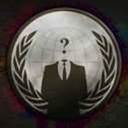Scotland Yard admitted a member of the Anonymouscollective had infltrated a conference call the agency held with the FBI last month.

An unknown member had accessed the 17 minute call using the conference telephone number and password.
The call was recorded and posted to YouTube. It revealed a conversation between five members of the agencies who discussed alleged Anonymous and LulzSec operatives.
A Scotland Yard representative updated participants on the cases of Ryan Cleary and Jake Davis, two alleged members of the LulzSec group who hacked multiple organisations last year.
The representative also discussed a move to delay the arrests of alleged LulzSec hackersTflow and Kayla to give FBI agents more time to examine Cleary's hard drive.
The real names of Tflow and Kayla were censored in the recording, presumably to protect the pair.
"We're looking to try and build some time in to allow some operational matters to fulfill on your side of the water," the rpesentative said.
"So, we've set back the further arrests of Kayla and Tflow. We've got our prosecution counsel making an application in chambers, without defense knowing, to seek a way to try and factor some time that won't look suspicious."
The Yard rep spoke of an alleged hacker "Tehwongz," a 15-year-old who was arrested in December for launching a distributed denial-of-service attack against his school in Britian and defacing a credit union.
That hacker was said to be the face of CSLsec (Can't Stop Laughing Security), a supposed three-member offshoot of LulzSec, the official said.
"He's basically just doing all of this for attention and [he's] a bit of an idiot," the representative said, adding that his team has found writings in which Tehwongz explains how he became a hacker and claims responsibility for breaching the online gaming network Steam last year.
The FBI's Baltimore office was investigating that incident.
Along with the recording, Anonymous also leaked a 13 January email announcing the call, dubbed the "Anon-Lulz International Coordination Call," which took place on 17 January.
The email was sent to more than 40 people, including law enforcement based in France and Ireland and contained dial-in details for the call.
Graham Cluley, senior technology consultant at security firm Sophos, said a hacker likely found the email by compromising one of the recipient's email accounts – and then called in themselves to eavesdrop and record the call.
"The assumption has to be that an Anonymous hacker had access to one of the recipients' email accounts, and thus had secret access to the confidential call," Cluley said.
According to a New York Times report, which quoted an unnamed FBI official, one of the email recipients forwarded the message to his personal email account, which was then accessed by hackers.
The Anonymous hacking collective said in a tweet from its flagship account that it has been intercepting FBI conversation for some time.
The FBI said it had taken the matter seriously.
"The information was intended for law enforcement officers only and was illegally obtained," the agency said in a statement.
"A criminal investigation is under way to identify and hold accountable those responsible."

_(23).jpg&h=140&w=231&c=1&s=0)


.png&h=140&w=231&c=1&s=0)





 iTnews Benchmark Awards 2026
iTnews Benchmark Awards 2026
 iTnews Executive Retreat - Security Leaders Edition
iTnews Executive Retreat - Security Leaders Edition
 iTnews Cloud Covered Breakfast Summit
iTnews Cloud Covered Breakfast Summit
 The 2026 iAwards
The 2026 iAwards












_(1).jpg&h=140&w=231&c=1&s=0)



